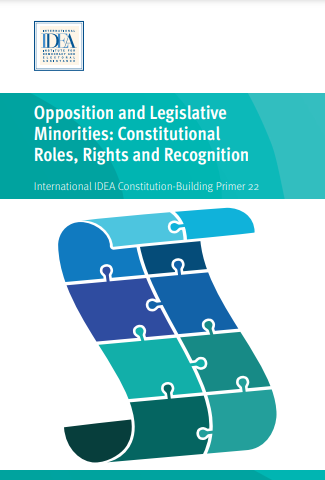Opposition and Legislative Minorities: Constitutional Roles, Rights and Recognition
This Primer examines the recognition, roles and rights of the opposition and the legislative minority in democratic constitutions. Opposition parties operating in democracies rely upon a wide range of constitutional protections, such as the freedoms of association, assembly and expression, backed by an independent judiciary and an impartial civil service. These protections ensure that opponents of the government continue to enjoy equal rights and are not criminalized, harassed or disadvantaged. However, many constitutions go further, formally recognizing the role, powers and responsibilities of the opposition or legislative minority in democratic politics.
International IDEA’s Constitution-Building Primers are designed to assist in-country constitution-building or constitutional-reform processes by helping citizens, political parties, civil society organizations, public officials and members of constituent assemblies make wise constitutional choices. They also provide guidance for staff of intergovernmental organizations and other external actors working to provide well informed, context-relevant support to local decision-makers.
Each Primer is written as an introduction for non-specialist readers, and as a convenient aide-memoire for those with prior knowledge of, or experience with, constitution-building. Arranged thematically around the practical choices faced by constitution-builders, the Primers aim to explain complex constitutional issues in a quick and easy way.
You can also download this publication from the International IDEA website.
